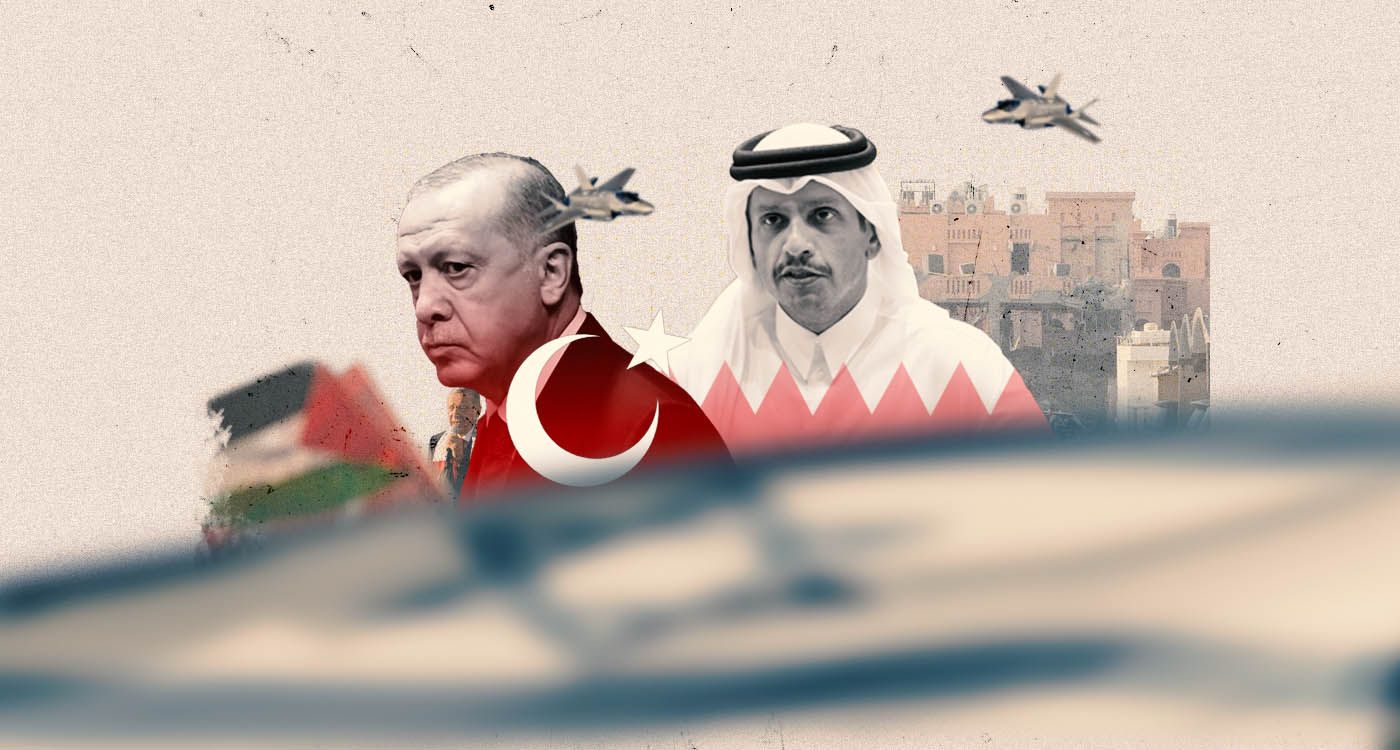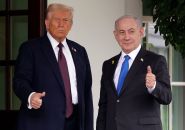- Home
- Middle East
- Why Qatar and Turkey Are Seen as 'Next in Line' for Conflict with Israel

©This is Beirut
The Israeli airstrike on September 9, 2025, against Hamas leaders in Doha shocked the Middle East, not only for its audacity but also for its symbolism: Israel was willing to strike inside the territory of a US ally, Qatar, long considered a safe haven for Hamas’ political leadership. The strike has since fueled speculation that Qatar, and by extension, its closest ally, Turkey, could be the “next” theaters of confrontation with Israel. But are Doha and Ankara truly sliding toward direct conflict with Tel Aviv, or is this another round of shadow wars and diplomatic brinkmanship?
Qatar has built its foreign policy on contradictions. Since 2012, it has hosted Hamas’ political bureau in Doha, with US knowledge and sometimes quiet approval, while also serving as Washington’s closest Gulf partner, home to Al Udeid Air Base and billions in US investments. For years, Doha’s role was tolerated as “useful:” it bankrolled Gaza with over $1.8 billion since 2018, helped stabilize ceasefires and positioned itself as a mediator.
Israel’s strike shattered that equilibrium. By hitting Hamas leaders in Katara, an elite Doha neighborhood, Israel directly challenged Qatar’s balancing act. For the first time, Qatari citizens were killed in an Israeli operation, making this not just a Hamas issue but a national humiliation. The incident galvanized Qatar’s rhetoric, labeling Israel’s actions as “state terrorism,” and provoked rare unity among Gulf states in condemning Tel Aviv.
The Doha strike reveals a troubling truth about today’s Middle East: military spectacle increasingly substitutes for political strategy. Israel chose to bomb in the middle of negotiations, signaling that it sees force as the only language worth speaking.
Qatar faces an existential choice: continue hosting Hamas and risk further attacks, or cut ties and lose its diplomatic relevance. The US is caught in a dilemma between two allies.
If Qatar is symbolically in the crosshairs, Turkey is strategically in Israel’s. President Recep Tayyip Erdoğan has positioned Ankara as Hamas’ last refuge, hosting its leaders openly in Istanbul and defending them as “freedom fighters.” Turkey’s ideological alignment with Hamas, rooted in its ruling AKP’s Islamist, neo-Ottoman vision, places it at direct odds with Israel’s existence.
The tension is not only about Gaza. Turkey’s expanding role in Syria after the Assad regime’s collapse has put it on a collision course with Israel. Ankara backs HTS and anti-Assad factions, while Israel has entrenched itself on Mount Hermon to block advanced weapons from falling into jihadist or pro-Turkey hands. In effect, Syria has become a proxy stage where Israeli and Turkish interests clash.
Meanwhile, Turkey’s moves in 2025, severing trade with Israel, blocking its airspace and joining the ICJ case accusing Tel Aviv of genocide, show Ankara is ready to escalate politically and economically. Israeli strategists now view Turkey not just as a critic but as an enabler of Hamas’ survival. Think tanks like AEI have gone as far as suggesting Turkey could be the “next Tunisia or Iran” in Israel’s agenda.
The wildcard is Washington. Qatar and Turkey are both indispensable to US strategy: Qatar as the Gulf’s finance and base hub, Turkey as NATO’s southeastern flank. The US cannot afford a full rupture with either. Yet the September 9 strike shows Israel is willing to test the limits, even at the expense of American discomfort. Washington condemned the attack but quickly shifted back to its dual track: supporting Israel’s fight against Hamas while assuring Doha and Ankara of protection.
This balancing act may prove unsustainable. If Israel continues unilateral strikes in Qatar or Turkey, the US risks alienating allies it needs against Iran, Russia and China. Doha and Ankara are already exploring deeper ties with Moscow and Beijing as alternatives, signaling a potential geopolitical realignment.
Despite the rhetoric in the media, neither Qatar nor Turkey seem poised for a conventional war with Israel: Qatar relies entirely on US defense and will lean on legal, diplomatic and financial tools instead of arms.
Turkey, though more assertive, is still tethered to NATO and has practical economic ties with Israel (via Azerbaijan’s oil exports). An all-out war risks dragging NATO into an Israeli conflict, a scenario Washington, Brussels and Ankara all want to avoid.
Israel sees Turkey and Qatar as “frenemies” because they play a double role: indispensable mediators and financial lifelines on one hand, safe havens for Hamas leaders on the other. For years, Israel relied on Qatar to channel aid into Gaza and on Turkey for trade and occasional security coordination, but both also hosted Hamas figures who, in Israel’s eyes, planned and celebrated the October 7 attacks. Since that day, Israel’s approach has tilted toward vengeance.
Israel’s Doha strike broke a taboo and proved it could challenge even US-aligned states. That alone reshapes perceptions: Qatar is no longer untouchable, and Turkey could be tested next.
But in real terms, both countries are too embedded in US and global systems to risk war. The true battleground will be image, influence and proxies. Israel wants to dismantle Hamas’ sanctuaries abroad, and Qatar and Turkey want to preserve their Islamist credentials without losing Western protection. The clash will be sharp, loud and possibly bloody in covert ways, but a full-scale war remains improbable.
Qatar and Turkey are “next,” not because war is imminent, but because Israel has shown it will no longer respect their dual roles as US allies and Hamas patrons. This tension is the new frontline, fought through strikes, proxies and diplomacy, not tanks and missiles.
Read more




Comments